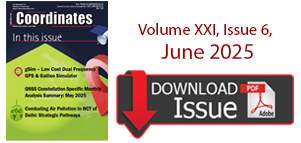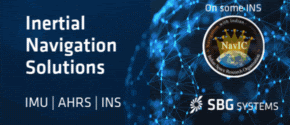|
The UN sponsored Permanent Committee on GIS Infrastructure (PCGIAP) together with Islamic Republic of Iran’s Deeds and Properties Registration Organization, the International Federation of Surveyors (FIG), the Global Spatial Data Infrastructure Association
(GSDI) and the Centre for Spatial Data Infrastructures and Land Administration, University of Melbourne, are organizing a three days Forum as part of the PCGIAP-Working Group 3 activities in Tehran to discuss land administration issues and the role of cadastre to support e-government in the Asia and Pacific region. The Seminar was Chaired by Prof Ian Williamson and co-chaired by Associate Professor Abbas Rajabifard. Over 410 people from 15 countries and 4 international organisations attended the forum. The objectives of the forum in Tehran were:
● To discuss the role of cadastre to support e-Government strategies
● To share land administration experiences in the Asia and Pacific region with a focus on re-engineering cadastre to To share land administration experiences in the Asia and Pacific region with a focus
on re-engineering cadastre to support e-government
● To discuss wide ranging land administration issues including access
to land and security of tenure, the role of land administration in supporting sustainable development, the promotion of effective land markets, poverty reduction, protection of vulnerable groups, e-land administration, land registration, cadastral surveying and mapping etc.
● To continue discussion on the need for an ongoing land administration forum in the Asia and the Pacific region that was commenced at the Mongolian and Malaysian forums with a view to preparing a proposal and resolution to be put before the UN Cartographic Conference for Asia and the Pacific in Bangkok 26-29 October, 2009.
This initiative was the result of a Resolution passed by the 14th PCGIAP meeting in Malaysia in 2008 and a desire by many countries in the Asia and the Pacific region to have a forum to discuss and share land administration issues, best practice and experiences, in a similar
manner to the Working Party on Land Administration (WPLA) for European countries, organized by the UN Economic Commission for Europe (UNECE).
The focus of the forum was developed both by the PCGIAP and the 2nd Land Administration Forum for Asia and the Pacific hosted by the Malaysian Government in 2008. It was also influenced by the first Land Administration Forum organized by the Mongolian Government in 2007 that was also supported by UNDP, UNECE (WPLA), GSDI Association, FIG, the Asian Development Bank, German Technical Assistance (GTZ), Eurogeographics and the National Land Survey of Sweden.
There were more than 20 presentations including invited presentations from FIG, GSDI and Eurogeographic, Europe and also selected countries from Asia- Pacific that presented. The countries presented were Australia, Bahrain, Brunei, China, Denmark, India, Iran, Laos, Malaysia, Mongolia, Pakistan, Singapore, Switzerland, The Netherlands, UAE. In summary, the following is feedback from the Forum.
The 3rd Land Administration Forum acknowledges the warm welcome from the Head of the Judiciary Honorable Ayatollah Hashemi Shahrodi and noted his message to the Forum to consider issues and strategies that may be useful to Asia-Pacific member nations to improve their cadastre, land registration and related land administration and SDI activities. In response to this message the Forum has developed and
endorsed the Tehran Declaration on Land Administration to Support Sustainable Land Markets and e-Government, and hopes that the declaration will be useful to improving the land administration systems in the region and contributing to a better quality of life for society.
Resolutions
Resolutions to be taken to PCGIAP to support a resolution to the United
Nations Cartographic Conference for Asia and the Pacific, October, 2009. The 3rd Land Administration Forum in Tehran 24-26 May 2009 resolved
•• to support the resolution of the 14th PCGIAP to have an annual forum to discuss land administration issues, best practise and experiences in the Asia and the Pacific region.
•• to propose that process re-engineering as part of an ICT strategy directed at land administration, cadastre and SDI and spatial enabled government and society be included in any strategies to improve land administration systems and also in the future workplan of PCGIAP-WG3 and land administration forums. For details contact: Associate Professor Abbas Rajabifard (abbas.r@unimelb. edu.au) or visit at http://www.csdila. unimelb.edu.au/projects/tehran/ index.html or www.pcgiap.org.
Tehran Declaration
The International Seminar on Land Market Management and the 3rd Land Administration Forum, sponsored by the UN supported Permanent Committee on GIS Infrastructure for Asia and the Pacific (PCGIAP), discussed wide ranging issues concerned with the management of land, the cadastre, land administration, land markets, spatial data infrastructures, spatial enabled governments and societies, and e-government. The delegates endorsed the following declaration: Every country should have a formal system of registration for land and property rights with an appropriate spatial framework in order to facilitate good governance and to support secure ownership of land, investments and other private and public interests in real estate.
Effective systems for recording land ownership, land values and land use are the foundation on which the efficient operation of a market economy depends and underpin the sustainable and productive management of land resources.
These systems reduce the risk to those who wish to invest in property and land development, facilitating greater efficiency and economic growth. Simply, sustainable land markets require good land administration systems. A good land administration system supports
sustainable development. It will guarantee ownership and security of tenure; support land and property taxation; provide opportunities for investment; develop and monitor land markets; protect land resources and support environmental monitoring; facilitate the management of State-owned land; reduce land disputes; facilitate rural land management; improve urban and rural planning and infrastructure development; provide statistical data in support of good governance; and provide a foundation for spatially enabling government, business and wider society. It should be affordable and open to everyone, meeting the needs of all its users, and must be sustainable.
Good practice in land administration means: The law should define the nature of land, the form and nature of ownership, the legally recognized forms of tenure and the rights, restrictions and responsibilities that must be registered; The land administration system should be run on business lines, often in partnership with the private sector, with a long-term financial model and an appropriate regulatory framework and management system that focuses on meeting customer demands; The operations of the land administration
system must be transparent, with safe and easy access to the land market and affordable for all participants; The efficiency, integrity and transparency of the land administration system must be constantly measured and monitored, through performance indicators relating for example to the time and cost of each transaction, and customer satisfaction; In order to add value to the basic information, records of ownership, value and use of land should be spatially enabled and integrated either by having one organization responsible for their maintenance or through several organizations sharing data through an e-government strategy; Land administration records should be based on a common referencing system such as coordinates on a geocentric datum and street addresses, as part of a spatial data infrastructure and an e-government strategy.
Both the Land Market Seminar and Land Administration Forum identified a number of key issues to assist improvement and management of land administration systems: The creation of a vision or “big picture”, and road map to support long term planning and implementation; Developing a National Land Policy that addresses land-related issues in a holistic way and provides a foundation for economic development, ensures all have access to land and protects women and vulnerable groups; Taking action to improve the legal and institutional framework for land-related activities; Making land-related information more open, transparent and accessible for the public; Speeding up the processes of core land activities (registrations, plans, valuations, etc.) through process re-engineering, computerization and closer co-operation between all land-related agencies; Developing an Information Policy to provide a framework for the sharing of data between agencies as part of an e-government strategy and, as appropriate, with the public; Using Business Process Re-engineering (BPR) as an integral component of the introduction of Information and Communications Technology (ICT) to facilitate the modernization of land administration systems; Strengthening the SDI within the general ICT Strategy as a key component of land administration; Ensuring appropriate institutional and technical arrangements are in place to facilitate the integration of cadastral and topographic data within spatial data infrastructures (SDI) to support sustainable development;
Strengthening the relationship and understanding between the land administration and financial sectors; Improving the system of land valuation by adopting international standards and adopting a system of fair and equitable land taxation; Improving procedures for sharing the cost and risk in land development; Strengthening the capacity inside as well as outside government agencies and in universities and initiating research in land administration, spatial data infrastructures and spatial enablement; Encouraging participation in the land administration system through public awareness campaigns both within
government and wider society and streamlining procedures to facilitate participation; and Co-operating with international organizations such as the UN-supported PCGIAP and the International Federation of Surveyors in the sharing of knowledge and understanding of issues related to land.
|












 (36 votes, average: 1.17 out of 5)
(36 votes, average: 1.17 out of 5)




